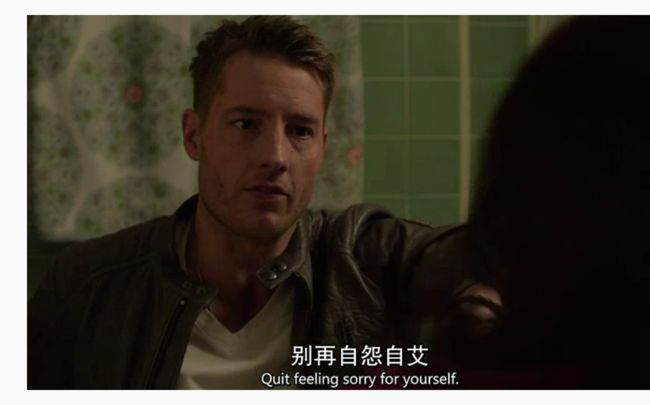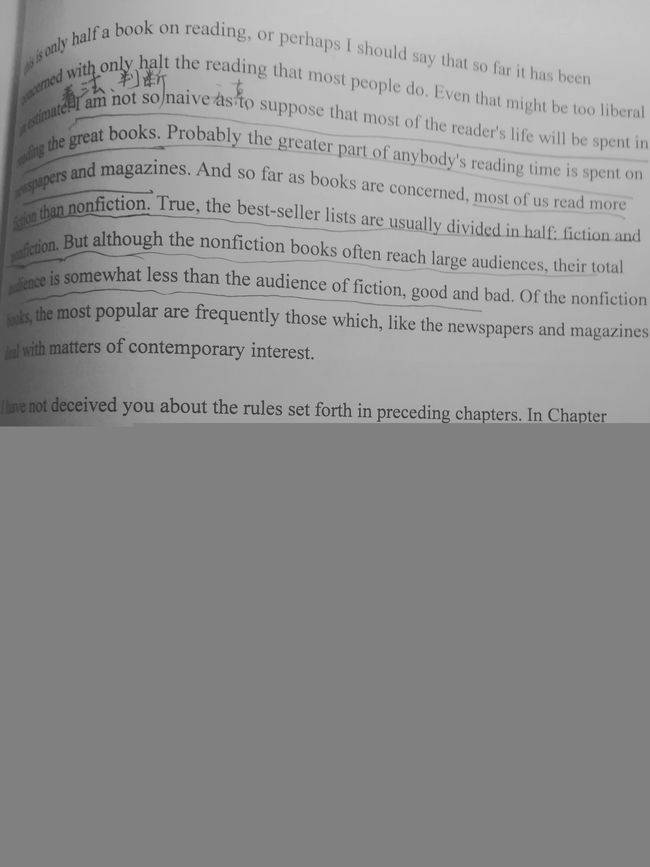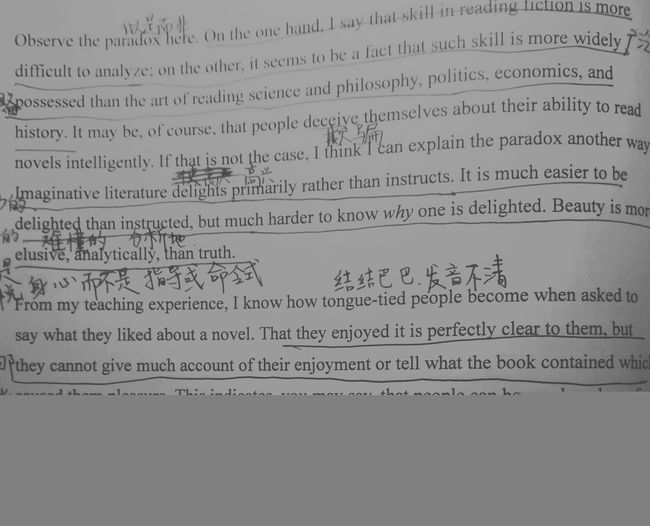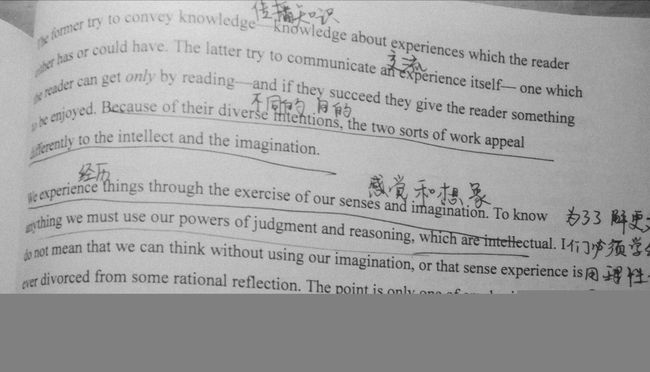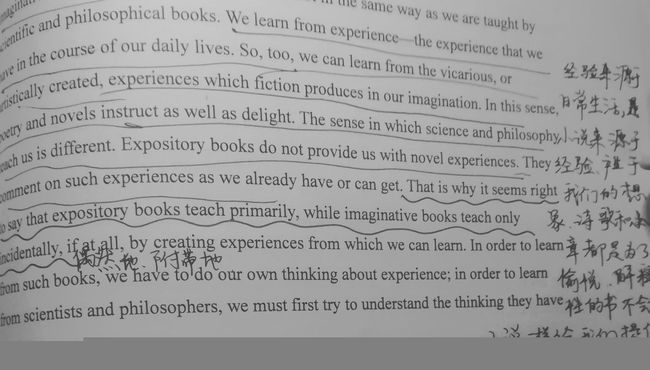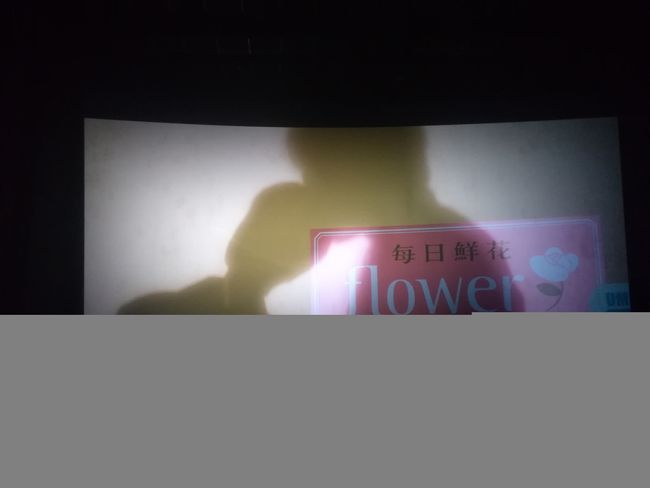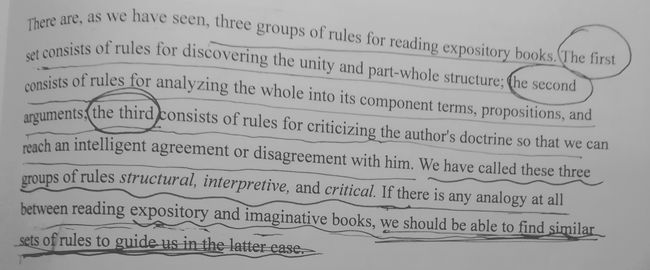- Chapter 3-15. Detecting Congestion in Fibre Channel Fabrics
mounter625
Linuxkernel网络服务器kernellinux
Credit-loss-recoTheCredit-loss-recoPort-MonitorcounterdetectstheinstancesofCreditLossRecoveryonaswitchport.AstheTxCreditLossRecoverysectionexplains,whenaswitchporthaszeroremaining-Tx-B2B-creditsfor1se
- MySQL Connector/Python 接口 (一)
weixin_33750452
python数据结构与算法数据库
这里仅介绍MySQL官方开发的Python接口,参见这里:https://dev.mysql.com/doc/connector-python/en/Chapter1IntroductiontoMySQLConnector/Python这个接口是用纯Python写成的,仅依赖PythonStandardLibrary。MySQLConnector/Python支持以下几点:1、MySQLServe
- Quartz框架
mimi虾
Java框架quzrtzspringbootquartz
Quartz的介绍关于Quartz的介绍网上有很多很多,但是在浏览了很多的文章之后,在这里优先推荐给大家的有如下几个以供大家理解,在这里感谢作者的辛苦贡献。参考一(翻译版):https://xuzongbao.gitbooks.io/quartz/content/chapter1.html参考二(开发API):https://www.quartz-scheduler.org/api/2.2.1/i
- AWS学习笔记——Chapter5 Identity and Access Management and Security on AWS
坚果壳er
AWS学习
前注:学习书籍IndexIdentityandAccessManagementandSecurityonAWS1.Authentication(认证)2.Authorization(授权)3.Auditing(审核)4.Typesofsecuritycredentials(安全凭证的类型)5.Users6.Groups7.Roles8.IAMHierarchyofPrivileges9.IAMBe
- Chapter Two:无限debugger的原理与绕过与断点调试
Amo Xiang
爬虫实战javascript前端无限debugger
目录1.无限debugger的原理与绕过1.1案例介绍1.2实现原理1.3禁用断点1.4补充:改写JavaScript文件2.断点调试1.无限debugger的原理与绕过1.1案例介绍debugger是JavaScript中定义的一个专门用于断点调试的关键字,只要遇到它,JavaScript的执行便会在此处中断,进入调试模式。有了debugger这个关键字,我们就可以非常方便地对JavaScrip
- Chapter 3-14. Detecting Congestion in Fibre Channel Fabrics
mounter625
Linuxkernel网络tcp/ip网络协议服务器
PortMonitorPolicyParametersEachpolicycontainsoneormorecounterstomonitor.Countershavethefollowingparameters:每个策略包含一个或多个要监控的计数器。计数器有以下参数:Countername:Thenameofthecounterwhichdescribesitsfunction.说明计数器功能的
- 掌中星
江封时
chapter.1易言相信,林半星会是他人生中最美丽的一个意外。对,意外。青春里的意外。第一次遇见林半星,是在学校门口拐弯处的停车棚。由于大家基本上都不想挤公交又不情愿步行到学校,从上学期开始就有许多学生骑自行车过来,于是就有了这个学校临时搭建的简陋的停车棚。易言家的小店和小屋子在学校对街,虽然离学校不远,但他讨厌步行,为了方便,还是骑上了父亲的有些年头的黑色自行车。黑色自行车甚至还没有街边的共享
- 系统设计DDIA之Chapter 7 Transactions 之防止丢失更新
暴躁老哥在线刷题
SystemDesign数据库系统设计大数据系统架构DDIA
防止丢失更新涉及处理多个事务并发写入时发生的各种冲突类型。虽然“读已提交”和“快照隔离”等隔离级别管理与读取相关的冲突,但防止丢失更新需要额外的措施来处理写写冲突。丢失更新问题:当两个事务同时读取一个值,对其进行修改,然后将修改后的值写回时,会发生这种问题。一个修改可能会覆盖或“破坏”另一个修改,导致更新丢失。例子包括递增计数器、更新复杂文档,或多个用户同时编辑相同内容。防止丢失更新的解决方案:原
- The Magician's Nephew Chapter15
Mr_Oldman
"Oh,"saidDigory,verysurprised."Well,alright,I'llsayI'msorry.AndIreallyamsorryaboutwhathappenedinthewaxworksroom.There:I'vesaidI'msorry.Andnow,dobedecent(正派的)andcomeback.Ishallbeinafrightfulholeifyoudo
- [学习笔记]《CSAPP》深入理解计算机系统 - Chapter 4 处理器体系结构&Chapter 5 优化程序性能
Artintel
学习学习笔记ccsapp
总结一些第四章和第五章的一些关键信息Chapter4处理器体系结构将处理组织成阶段Chapter5优化程序性能Chapter4处理器体系结构在硬件中,寄存器直接将它的输入和输出线连接到电路的其他盆。在机器级变成中,寄存器代表的是CPU中为数不多的可寻址的字,这里的地址是寄存器的ID。这些字通常都存在寄存器文件中,虽然我们会看到硬件有时可以直接将一个字从一个指令传到另一个指令,以避免先写寄存器文件再
- csapp-chapter1
SFARL
博客c++
title:csapp_chapter1date:2020-06-1319:24:20tags:[网课,CSAPP,第一章]CSAPP和CMUIntroductiontocomputersystem(CS15-2132015fall)的笔记。相关资料Textbook在vscode上使用C1.COURSE-OVERVIEW从编程者的角度来讲述计算机系统。这也是为什么我第一门课选择这个的原因,因为自己
- CSAPP 学习笔记 Chapter two
ZSYGOOOD
careermilestone笔记CSAPPcsapp
先导“单个的位只能表示有/无的概念,把位组合在一起,加上解释,即给不同的可能位模式赋予含义,就能够表示任何有限集合的元素”位模式:0/1字符串,其中每个数位具有权重“计算机表示法是用有限数量的位来对一个数字编码,当结果太大以至于不能表示时,某些运算就会溢出(overflow)”“整数的运算满足整数算律,虽然可能溢出但是结果都相同”(500*400)*(300*200)=((500*400)*300
- [学习笔记]《CSAPP》深入理解计算机系统 - Chapter 6 存储器层次结构
Artintel
学习学习笔记ccsapp
总结一些第六章的一些关键信息Chapter6存储器层次结构DMA局部性抖动Chapter6存储器层次结构随机访问存储器(Random-AccessMemory,RAM)分为两类:静态的和动态的。静态(SRAM)比动态更快,更贵动态(DRAM)数据流通过称为总线(bus)的共享电子电路在处理器和DRAM主存来来回回。每次CPU和主存之间的数据传送都是通过一系列的步骤来完成的,这些步骤称为总线事务(b
- Fortress Besiege 004
努力每一天JM
Chapter2上Sentences1.haveaverychildishtemperament2.inthepresenceofthemansheloves,everywomanhastheamazingpowerofrejuvenation3.inanapologetictone4.blushhalfinpleasureandhalfinanger5.havesb'sluggageinspec
- Thinking,fast and slow CH6
哇620
Chapter6Norms,SurpriseandCausesThemainfunctionofSystem1istomaintainandupdateamodelofyourpersonalworld,whichrepresentswhatisnorminit.我们对这个的认知是由系统1快速作出反应的,比如听到“桌子”这个词,我们马上能知道他是个什么样子,这也是类人能够沟通的基础。而这些认知是不
- JAVA数组元素的遍历_Java数组元素的遍历
知更社区
JAVA数组元素的遍历
Java数组元素的遍历packagecom.wkcto.chapter03.demo01;importjava.util.Arrays;/***数组的定义,元素的访问与遍历*@author蛙课网**/publicclassTest01{publicstaticvoidmain(String[]args){//1)定义一个数组,存储5个int类型数据int[]data=newint[5];//定义数
- 《过往》连载:Chapter.09衣带渐宽终不悔(4)
投资人老A
这学期的课程中开了一门观赏鸟类欣赏,发的教材象一本画册,详细记录了中国名贵鸟种和珍稀鸟种,这些鸟类确实估计有可能我赚一辈子的钱也买不到的,对我们来说,没有多大的实际意义系里为了配合教学就从市场上买回一些普通鸟类,大都是虎皮鹦鹉,绣眼麻雀之类的。由于我们不懂得饲养,一星期内就死了一半,剩下的十几个鸟笼里每个鸟笼里只有那么一两只,为了照料这些鸟,我们组的十几个人便轮流值日,主要负责打扫鸟的粪便以及饮食
- 《小王子》第十一章
一只快乐的小肥肥
Chapter11-thelittleprincevisitstheconceitedmanThesecondplanetwasinhabitedbyaconceitedman."Ah!Ah!Iamabouttoreceiveavisitfromanadmirer!"heexclaimedfromafar,whenhefirstsawthelittleprincecoming.For,toconc
- 2018,记录点滴 真实如你
兰兰黄Nancyhll
2018,记录点滴真实如你Chapter1哈罗,生活我是兰兰黄Nancyhll这是我的第一篇文章,如果你问我为什么要写作,那么我的回答很简单”因为我热爱你生活!我想珍惜你赋予我生活享受的权利和回忆过往的美好!“看着,身边有一群特别强大的事业伙伴们每天一篇文章666我默默地观察着,我在想:好棒你们,好幸运跟大家在一起,这么一群热爱学习、热爱生活的人儿;都说,爱学习爱生活的人,都是对自己有要求有目标积
- 我是主宰我怕谁之起名真难
不安分的小小怪
Chapter1宇宙中,一条黄金龙在虚空飞行,而有一人正躺在龙首之上。那人一身古装白衣,年龄默约二十三四,面色如玉,剑眉星目,一席白色的长发和白色的眉毛显出几分沧桑。他名叶凌天,是凌驾于一切之上的主宰。虽说他是无敌主宰,不死不灭,但是他最痛苦的正是不死不灭。见过无数文明,看过无数沧桑,最后留下的却是无尽的寂寞。长生也是一种折磨。“小龙,下一个星球是哪?”叶凌天闭着眼睛淡淡道。“回大人,离我们最近的
- Chapter39 我们的九月生活
未醒将醒
九月底的时候,欧亦结束了实习,回到学校。整个人瘦了一圈,黑了一个度。倒是眉宇间多了一份自信与淡然,傲气丝毫未减。导师甚是欢喜,说纽约那边的主管对这个清瘦的中国青年赞不绝口,称之为有志之才,前途无可限量。欧亦一笑倾城,摆摆手:“老师,他们是看您的面子才如此说的。”老教授爽然大笑:“都是当年吃一起睡一起的老伙计,他是不会放过任何抹黑我的机会的,你呀,是真的好。”老教授问:“你真的决定不留在美国发展吗?
- chapter03 流程语句 知识点Note
月下绯烟
Java开发语言java
@TOC分支结构if-else和switch-caseswitch(表达式){case常量值1:语句块1;//break;case常量值2:语句块2;//break;//...[default:语句块n+1;break;]}switch-case执行过程:第1步:根据switch中表达式的值,依次匹配各个case。如果表达式的值等于某个case中的常量值,则执行对应case中的执行语句。第2步:执
- chapter01 Java语言概述 知识点Note
月下绯烟
Javajava开发语言
JavaSEJavaEEJavaME大数据Java基础常用技术栈mysqlJDBCSSMspring+springmvc+mybatisLinuxnacosHadoopFlinkJAVAEE消息队列rabbitMQdocker数据库redisspringbootspringcloudsshstruts+spring+hibernate过时技术栈很少用JAVA虚拟机jvm分布式微服务高并发常见dos
- chapter06 面向对象基础 知识点Note
月下绯烟
Java开发语言java
文章目录前言类的设计属性和行为对象的内存解析(堆栈方法区)类的成员之一变量(属性)field类的成员之二方法method对象数组方法重载overload可变个数的形参语法糖方法的值传递机制递归关键字packageimportMVC设计模式import导入面向对象特征之一封装类的成员之三构造器JavaBeanUML类图前言`面向对象封装面向对象是软件开发中的一种编程风格和开发范式,除了面向对象,还有
- The Definitive ANTLR 4 Reference (2nd Edition) - Chapter 1
陨落
ANTLR语言antlr
Chapter1-MeetANTLR本书PartI中,我们的目标是对ANTLR的能力有一个整体的认知,并尝试探索语言应用框架。一旦我们有了整体的概念,我们接下来就会在PartII中通过大量的真实案例系统学习ANTLR。本书开始,我们要先安装ANTLR,然后尝试制作一个简单的“helloworld”的grammer。1.1安装ANTLRANTLR是用Java编写的,所以在开始使用之前需要有完整的Ja
- chapter04 IDEA使用与快捷键 知识点Note
月下绯烟
Javajavaidea
idea自动生成gettersetter快捷键Alt+InsertProjectStructure项目架构选中文件openinexplorer自动导包设置General->autoImport工程模块管理project->module->package->class一个project可以有多个modules一个modules可以有多个package一个package可以有多个class快捷键汇总一
- java多线程:模拟ThreadLocal
╭╯Erica
并发编程java多线程
ThreadLocal存储的变量,同一线程下可见,不同线程不可见packagecom.tuyrk.chapter10;importjava.util.HashMap;importjava.util.Map;/***模拟ThreadLocal**/publicclassThreadLocalSimulator{privatefinalMapstorage=newHashMapthreadLocal=
- 《异星游记Ⅰ·奥特利亚》chapter 6 谜团
朴素无为
【玛雅大陆·奇琴伊察区·奇琴伊察城·祭司院】金字塔形状的祭司院宏伟地伫立在巨型都市的中央,这座巨大的水晶建筑在白天看起来祭司院壮丽而让人敬畏,但在夜晚带有透明感的外壳上蒸腾的柔和白光却让它增添了一份静美,削减了一份盛气凌人的气势。而祭司院的内部却又是另外一番景象,祭司院总共分为一百五十层,位于金字塔最顶部的数层便是作为十位祭司会议室的空间。会议室极其宽阔,而且天花板很高,给人一种视野开阔的感受。天
- The Old Man And The Sea Chapter01
Mr_Oldman
HewasanoldmanwhofishedaloneinaskiffintheGulfStreamandhehadgoneeighty-fourdaysnowwithouttakingafish.Inthefirstfortydaysaboyhadbeenwithhim.1.pngButafterfortydayswithoutafishtheboy’sparentshadtoldhimthat
- 《眉妩》(060)by春衫冷
春衫冷
架空小言,纯属虚构chapter28解红(2)刮雨器钟摆般划着车窗上的雨水,车里一片静寂,她从后视镜里窥看虞绍珩,他只是专注地看着前方的山路,一丝表情也无。雨水敲打车窗的声音越来越密,不过几分钟的工夫,天色已然沉得像傍晚一般。苏眉双手紧握着伞柄,忽然觉得不妥,或许她的急切过于任性了,他说得对,天气不好,在这样的山路上行车的确有失考量。她应该等雨停了再走的,他虽然每每调戏她,却也并没有真的把她怎么样
- 深入浅出Java Annotation(元注解和自定义注解)
Josh_Persistence
Java Annotation元注解自定义注解
一、基本概述
Annontation是Java5开始引入的新特征。中文名称一般叫注解。它提供了一种安全的类似注释的机制,用来将任何的信息或元数据(metadata)与程序元素(类、方法、成员变量等)进行关联。
更通俗的意思是为程序的元素(类、方法、成员变量)加上更直观更明了的说明,这些说明信息是与程序的业务逻辑无关,并且是供指定的工具或
- mysql优化特定类型的查询
annan211
java工作mysql
本节所介绍的查询优化的技巧都是和特定版本相关的,所以对于未来mysql的版本未必适用。
1 优化count查询
对于count这个函数的网上的大部分资料都是错误的或者是理解的都是一知半解的。在做优化之前我们先来看看
真正的count()函数的作用到底是什么。
count()是一个特殊的函数,有两种非常不同的作用,他可以统计某个列值的数量,也可以统计行数。
在统
- MAC下安装多版本JDK和切换几种方式
棋子chessman
jdk
环境:
MAC AIR,OS X 10.10,64位
历史:
过去 Mac 上的 Java 都是由 Apple 自己提供,只支持到 Java 6,并且OS X 10.7 开始系统并不自带(而是可选安装)(原自带的是1.6)。
后来 Apple 加入 OpenJDK 继续支持 Java 6,而 Java 7 将由 Oracle 负责提供。
在终端中输入jav
- javaScript (1)
Array_06
JavaScriptjava浏览器
JavaScript
1、运算符
运算符就是完成操作的一系列符号,它有七类: 赋值运算符(=,+=,-=,*=,/=,%=,<<=,>>=,|=,&=)、算术运算符(+,-,*,/,++,--,%)、比较运算符(>,<,<=,>=,==,===,!=,!==)、逻辑运算符(||,&&,!)、条件运算(?:)、位
- 国内顶级代码分享网站
袁潇含
javajdkoracle.netPHP
现在国内很多开源网站感觉都是为了利益而做的
当然利益是肯定的,否则谁也不会免费的去做网站
&
- Elasticsearch、MongoDB和Hadoop比较
随意而生
mongodbhadoop搜索引擎
IT界在过去几年中出现了一个有趣的现象。很多新的技术出现并立即拥抱了“大数据”。稍微老一点的技术也会将大数据添进自己的特性,避免落大部队太远,我们看到了不同技术之间的边际的模糊化。假如你有诸如Elasticsearch或者Solr这样的搜索引擎,它们存储着JSON文档,MongoDB存着JSON文档,或者一堆JSON文档存放在一个Hadoop集群的HDFS中。你可以使用这三种配
- mac os 系统科研软件总结
张亚雄
mac os
1.1 Microsoft Office for Mac 2011
大客户版,自行搜索。
1.2 Latex (MacTex):
系统环境:https://tug.org/mactex/
&nb
- Maven实战(四)生命周期
AdyZhang
maven
1. 三套生命周期 Maven拥有三套相互独立的生命周期,它们分别为clean,default和site。 每个生命周期包含一些阶段,这些阶段是有顺序的,并且后面的阶段依赖于前面的阶段,用户和Maven最直接的交互方式就是调用这些生命周期阶段。 以clean生命周期为例,它包含的阶段有pre-clean, clean 和 post
- Linux下Jenkins迁移
aijuans
Jenkins
1. 将Jenkins程序目录copy过去 源程序在/export/data/tomcatRoot/ofctest-jenkins.jd.com下面 tar -cvzf jenkins.tar.gz ofctest-jenkins.jd.com &
- request.getInputStream()只能获取一次的问题
ayaoxinchao
requestInputstream
问题:在使用HTTP协议实现应用间接口通信时,服务端读取客户端请求过来的数据,会用到request.getInputStream(),第一次读取的时候可以读取到数据,但是接下来的读取操作都读取不到数据
原因: 1. 一个InputStream对象在被读取完成后,将无法被再次读取,始终返回-1; 2. InputStream并没有实现reset方法(可以重
- 数据库SQL优化大总结之 百万级数据库优化方案
BigBird2012
SQL优化
网上关于SQL优化的教程很多,但是比较杂乱。近日有空整理了一下,写出来跟大家分享一下,其中有错误和不足的地方,还请大家纠正补充。
这篇文章我花费了大量的时间查找资料、修改、排版,希望大家阅读之后,感觉好的话推荐给更多的人,让更多的人看到、纠正以及补充。
1.对查询进行优化,要尽量避免全表扫描,首先应考虑在 where 及 order by 涉及的列上建立索引。
2.应尽量避免在 where
- jsonObject的使用
bijian1013
javajson
在项目中难免会用java处理json格式的数据,因此封装了一个JSONUtil工具类。
JSONUtil.java
package com.bijian.json.study;
import java.util.ArrayList;
import java.util.Date;
import java.util.HashMap;
- [Zookeeper学习笔记之六]Zookeeper源代码分析之Zookeeper.WatchRegistration
bit1129
zookeeper
Zookeeper类是Zookeeper提供给用户访问Zookeeper service的主要API,它包含了如下几个内部类
首先分析它的内部类,从WatchRegistration开始,为指定的znode path注册一个Watcher,
/**
* Register a watcher for a particular p
- 【Scala十三】Scala核心七:部分应用函数
bit1129
scala
何为部分应用函数?
Partially applied function: A function that’s used in an expression and that misses some of its arguments.For instance, if function f has type Int => Int => Int, then f and f(1) are p
- Tomcat Error listenerStart 终极大法
ronin47
tomcat
Tomcat报的错太含糊了,什么错都没报出来,只提示了Error listenerStart。为了调试,我们要获得更详细的日志。可以在WEB-INF/classes目录下新建一个文件叫logging.properties,内容如下
Java代码
handlers = org.apache.juli.FileHandler, java.util.logging.ConsoleHa
- 不用加减符号实现加减法
BrokenDreams
实现
今天有群友发了一个问题,要求不用加减符号(包括负号)来实现加减法。
分析一下,先看最简单的情况,假设1+1,按二进制算的话结果是10,可以看到从右往左的第一位变为0,第二位由于进位变为1。
- 读《研磨设计模式》-代码笔记-状态模式-State
bylijinnan
java设计模式
声明: 本文只为方便我个人查阅和理解,详细的分析以及源代码请移步 原作者的博客http://chjavach.iteye.com/
/*
当一个对象的内在状态改变时允许改变其行为,这个对象看起来像是改变了其类
状态模式主要解决的是当控制一个对象状态的条件表达式过于复杂时的情况
把状态的判断逻辑转移到表示不同状态的一系列类中,可以把复杂的判断逻辑简化
如果在
- CUDA程序block和thread超出硬件允许值时的异常
cherishLC
CUDA
调用CUDA的核函数时指定block 和 thread大小,该大小可以是dim3类型的(三维数组),只用一维时可以是usigned int型的。
以下程序验证了当block或thread大小超出硬件允许值时会产生异常!!!GPU根本不会执行运算!!!
所以验证结果的正确性很重要!!!
在VS中创建CUDA项目会有一个模板,里面有更详细的状态验证。
以下程序在K5000GPU上跑的。
- 诡异的超长时间GC问题定位
chenchao051
jvmcmsGChbaseswap
HBase的GC策略采用PawNew+CMS, 这是大众化的配置,ParNew经常会出现停顿时间特别长的情况,有时候甚至长到令人发指的地步,例如请看如下日志:
2012-10-17T05:54:54.293+0800: 739594.224: [GC 739606.508: [ParNew: 996800K->110720K(996800K), 178.8826900 secs] 3700
- maven环境快速搭建
daizj
安装mavne环境配置
一 下载maven
安装maven之前,要先安装jdk及配置JAVA_HOME环境变量。这个安装和配置java环境不用多说。
maven下载地址:http://maven.apache.org/download.html,目前最新的是这个apache-maven-3.2.5-bin.zip,然后解压在任意位置,最好地址中不要带中文字符,这个做java 的都知道,地址中出现中文会出现很多
- PHP网站安全,避免PHP网站受到攻击的方法
dcj3sjt126com
PHP
对于PHP网站安全主要存在这样几种攻击方式:1、命令注入(Command Injection)2、eval注入(Eval Injection)3、客户端脚本攻击(Script Insertion)4、跨网站脚本攻击(Cross Site Scripting, XSS)5、SQL注入攻击(SQL injection)6、跨网站请求伪造攻击(Cross Site Request Forgerie
- yii中给CGridView设置默认的排序根据时间倒序的方法
dcj3sjt126com
GridView
public function searchWithRelated() {
$criteria = new CDbCriteria;
$criteria->together = true; //without th
- Java集合对象和数组对象的转换
dyy_gusi
java集合
在开发中,我们经常需要将集合对象(List,Set)转换为数组对象,或者将数组对象转换为集合对象。Java提供了相互转换的工具,但是我们使用的时候需要注意,不能乱用滥用。
1、数组对象转换为集合对象
最暴力的方式是new一个集合对象,然后遍历数组,依次将数组中的元素放入到新的集合中,但是这样做显然过
- nginx同一主机部署多个应用
geeksun
nginx
近日有一需求,需要在一台主机上用nginx部署2个php应用,分别是wordpress和wiki,探索了半天,终于部署好了,下面把过程记录下来。
1. 在nginx下创建vhosts目录,用以放置vhost文件。
mkdir vhosts
2. 修改nginx.conf的配置, 在http节点增加下面内容设置,用来包含vhosts里的配置文件
#
- ubuntu添加admin权限的用户账号
hongtoushizi
ubuntuuseradd
ubuntu创建账号的方式通常用到两种:useradd 和adduser . 本人尝试了useradd方法,步骤如下:
1:useradd
使用useradd时,如果后面不加任何参数的话,如:sudo useradd sysadm 创建出来的用户将是默认的三无用户:无home directory ,无密码,无系统shell。
顾应该如下操作:
- 第五章 常用Lua开发库2-JSON库、编码转换、字符串处理
jinnianshilongnian
nginxlua
JSON库
在进行数据传输时JSON格式目前应用广泛,因此从Lua对象与JSON字符串之间相互转换是一个非常常见的功能;目前Lua也有几个JSON库,本人用过cjson、dkjson。其中cjson的语法严格(比如unicode \u0020\u7eaf),要求符合规范否则会解析失败(如\u002),而dkjson相对宽松,当然也可以通过修改cjson的源码来完成
- Spring定时器配置的两种实现方式OpenSymphony Quartz和java Timer详解
yaerfeng1989
timerquartz定时器
原创整理不易,转载请注明出处:Spring定时器配置的两种实现方式OpenSymphony Quartz和java Timer详解
代码下载地址:http://www.zuidaima.com/share/1772648445103104.htm
有两种流行Spring定时器配置:Java的Timer类和OpenSymphony的Quartz。
1.Java Timer定时
首先继承jav
- Linux下df与du两个命令的差别?
pda158
linux
一、df显示文件系统的使用情况,与du比較,就是更全盘化。 最经常使用的就是 df -T,显示文件系统的使用情况并显示文件系统的类型。 举比例如以下: [root@localhost ~]# df -T Filesystem Type &n
- [转]SQLite的工具类 ---- 通过反射把Cursor封装到VO对象
ctfzh
VOandroidsqlite反射Cursor
在写DAO层时,觉得从Cursor里一个一个的取出字段值再装到VO(值对象)里太麻烦了,就写了一个工具类,用到了反射,可以把查询记录的值装到对应的VO里,也可以生成该VO的List。
使用时需要注意:
考虑到Android的性能问题,VO没有使用Setter和Getter,而是直接用public的属性。
表中的字段名需要和VO的属性名一样,要是不一样就得在查询的SQL中
- 该学习笔记用到的Employee表
vipbooks
oraclesql工作
这是我在学习Oracle是用到的Employee表,在该笔记中用到的就是这张表,大家可以用它来学习和练习。
drop table Employee;
-- 员工信息表
create table Employee(
-- 员工编号
EmpNo number(3) primary key,
-- 姓
